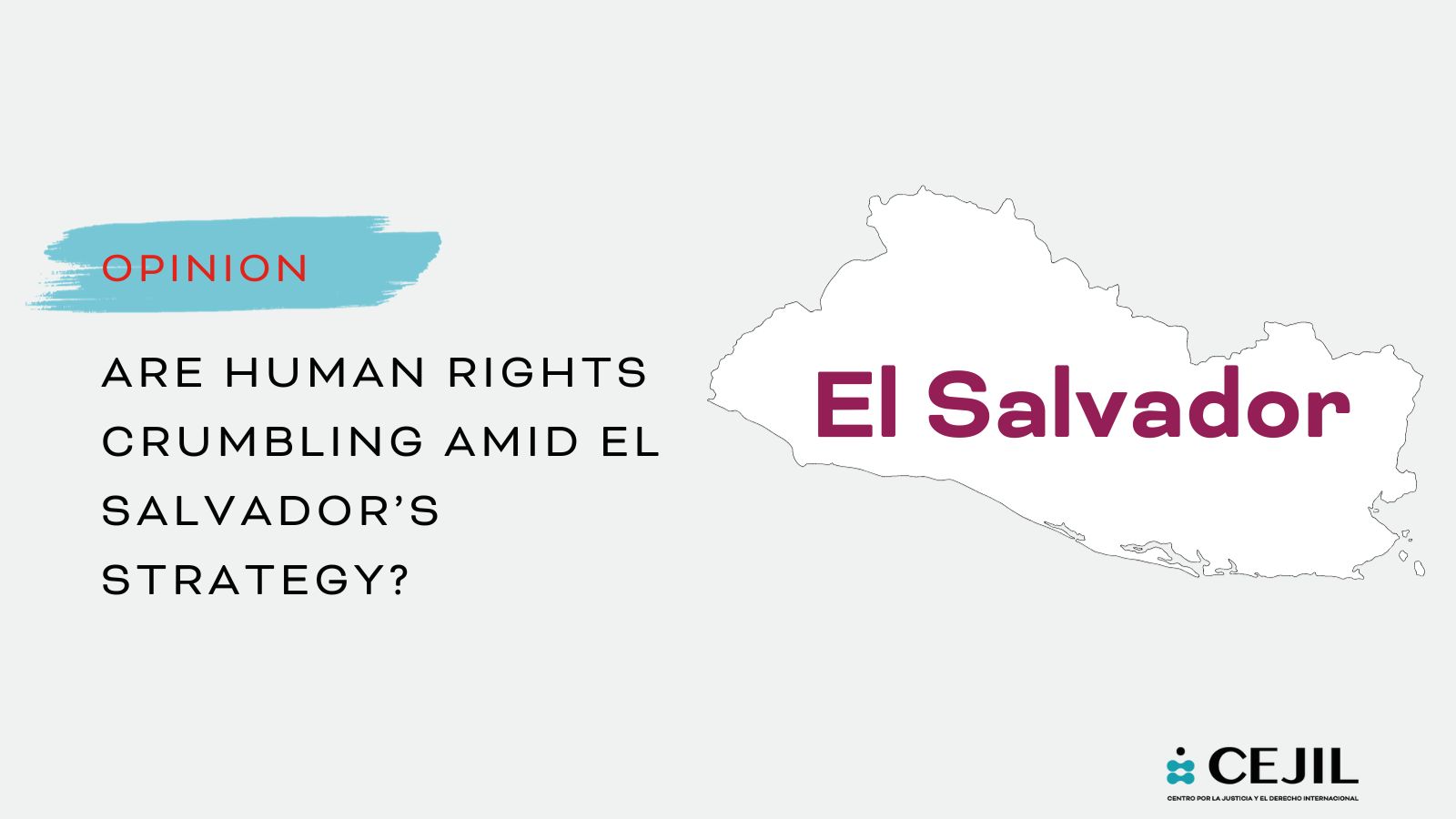






In the magazine LATIN AMERICA ADVISOR published by The Dialog on January 3, 2024, the editors make a question and invites Liliana Caballero, CEJIL’s advocacy officer and Alejandra Burgos, coordinator of the Salvadoran Network of Women Human Rights De[1]fenders, to answer. Read their participation below and the whole article at www.thedialogue.org
Q. A report released on Dec. 5 by Amnesty International accusing the Salvadoran government of subjecting prisoners to the “systematic use of torture and other mistreatment.” The report describes President Nayib Bukele’s sweeping crackdown on gangs, which has jailed 74,000 Salvadorans, as one of the most serious human rights crises in El Salvador since the end of its civil war in 1992. Is El Salvador turning back the clock in terms of state abuse of human rights? Have Bukele’s policies made El Salvador safer? And if so, can improving security or curtailing gang power justify the abuses detailed in Amnesty’s report? Does rising criticism of Bukele’s security policies stand a chance of hurting his electoral campaign?
A. “In El Salvador, the accumulation of power, the weakening of democracy and the lack of counterbalance from other political powers have led the Central American country toward autocracy, personified by Nayib Bukele. The state of exception, as a strategy in the war against gangs and the only security policy since March 2022, has generated an undeniable crisis with more than 75,000 arrests and at least 190 deaths of individuals while in state custody, with no investigations into the torture, executions or arbitrary detentions documented by civil society organizations. In addition, attacks on the defenders of human rights and independent journalism are increasingly a worrying concern. Threats, stigmatization, harassment and the use of law to criminalize human rights defenders are a trend that has forced them into silence, forced displacement and exile. The cost of security in El Salvador has implied taking away freedom through a state of exception that profiles its victims by criminalizing poverty and youth, and deepening the pre[1]cariousness of women’s lives, who are the breadwinners in households affected by the state of exception and maintain the struggle for justice for imprisoned family members. In the face of the imminent and unconstitutional re-election of Nayib Bukele, the hope for justice in the future requires that the state of exception ceases to be the rule”.
Help us continue this critical and urgent work with a donation!
DONATE NOW